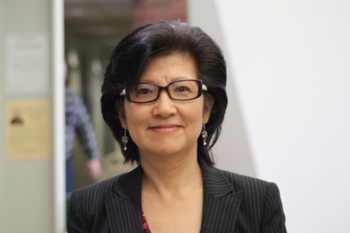Prof. Joanne Miyang Cho

Fellow in the project "Epochal Lifeworlds: Narratives of Crisis and Change"
Short Biography
Joanne Miyang Cho is a Professor of History at William Paterson University of New Jersey (USA). She previously taught at Hope College (Michigan) and at Ewha Womans University Summer School (South Korea). Her latest publications are co-edited volumes on modern Korea: Transnationalism and Migration in Global Korea and Korean Culture in the Global Age (forthcoming). Her edited/co-edited publications in East Asian-German Studies include German and China, Sino-German Encounters and Entanglements, Germany and East Asia, East Asian-German Cinema, Musical Entanglements, Gendered Encounters, Germany and Korea,and Germany and Japan. Her co-edited volume, German-speaking Jewish Refugees in Asia, 1933-1950, is forthcoming. Her current book project is entitled German-speaking Jewish Refugees and the Chinese in Shanghai, 1938-1949. She serves as a series co-editor for Palgrave Studies in Asian German Studies. She is a recipient of the Fulbright Fellowship, the Max Planck Institute for History, the Leibniz Institute for European History, and the DAAD.
Project
German-speaking Jewish Refugees and the Chinese in Shanghai, 1938-1949This research project delves into the intricate relationship between German-speaking Jewish refugees and the Chinese community in Shanghai from 1938 to 1949. It scrutinizes the memoirs, interviews, and letters that former Jewish refugees produced alone or collaboratively. While Japanese Jewish policies determined the political fate of these Jewish refugees in Shanghai, their day-to-day interactions involved the Chinese populace. This study sheds light on their ambivalent relationship, which was largely distant, yet punctuated by occasional transnational encounters. The first segment of this project elucidates the factors contributing to this distance, including social, hygienic, cultural, and linguistic differences. Most of the formerly middle-class Jewish refugees displayed minimal interest in Chinese politics, culture, or language. Similarly, their Chinese neighbors exhibited scant interest in them, amidst a city already teeming with different groups of Westerners. Ironically, their close physical proximity to impoverished Chinese neighbors seemed to exacerbate their Sinophobia, exposing them more frequently to what they perceived as “objectionable” practices compared to wealthier Westerners in the city. The subsequent section illustrates a period of wartime coexistence, albeit less harmonious in the postwar era, marked by limited transnational interactions. Many Jewish refugees appreciated the lack of antisemitic sentiments among the Chinese populace, while several Jews from Vienna acknowledged assistance from the Chinese diplomat Ho Feng-Shan. A small minority of the refugees forged personal bonds with their poor Chinese neighbors. They established deeper connections with some members of the Chinese middle class, but the number was quite small due to their geographical distance. Moreover, there were limited commercial and business connections between the two groups. Some refugees attempted to learn Shanghainese, although the majority prioritized English acquisition, while some Chinese peddlers picked up German phrases. However, concerning the Chinese practice of cumsha (bribery), Jewish refugees pilloried it while simultaneously exhibiting an unusual eagerness to adopt it, if they had opportunities, to supplement their meager income.
